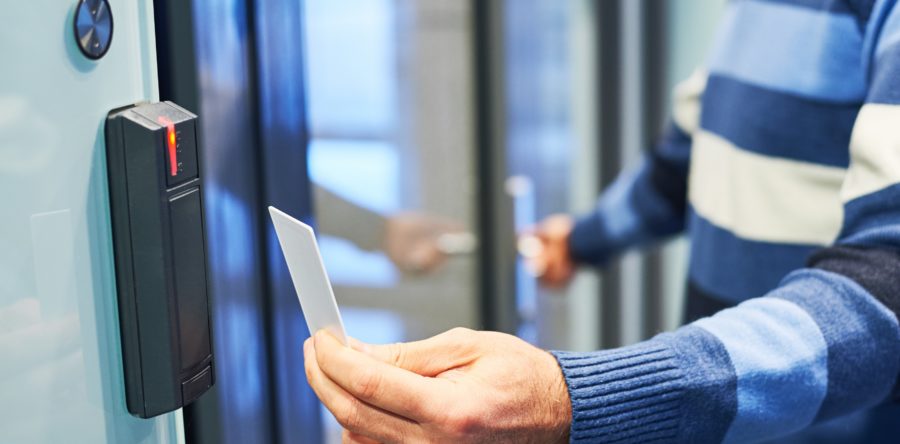Today, a growing number of property management firms appreciate the virtues of access control systems in residential settings. Once reserved primarily for large corporations, industrial settings, and office towers, these security tools now also perform a significant role in mixed commercial and residential venues as well. Apartment complexes increasingly utilize access control systems today.
Locksmiths and security firms sometimes offer access control system installation services. While these intelligent systems do not always require property owners to dispense with traditional locks and keys, in many cases property managers prefer to rely upon cards, fobs, or bio-metric identification systems in lieu of easily duplicated conventional mechanical keys. An access control system offers a number of important security advantages:
ONE: PROTECT THE ENTIRE FACILITY
By installing a comprehensive access control system, a property management firm enjoys a better opportunity to unify its security measures within a single, cohesive framework.
During former eras, property management firms sometimes struggled to oversee a variety of building security systems. For example, the company might protect the entrance to an apartment building using a master key system, while issuing individual apartment keys to tenants. Separate gated entrances or surveillance camera systems might protect parking areas and shared recreational facilities. Some areas, such as a janitor’s closet, might remain under the supervision of individual employees.
By installing an access control system, the property management firm can unify all its security measures within a single, comprehensive framework. Taking this step significantly reduces concerns about tenants and employees breaching security protocols. Property managers obtain tighter control over the entire facility.
TWO: ESTABLISH INDIVIDUALIZED ZONES OF ACCESS
Using a well-designed access control system permits the property management firm to define specific individualized zones of access.
The access control system establishes customized zones of access for managers, employees, tenants, and visitors. It allows property management firms to restrict unauthorized access more effectively. While not foolproof, this system does bolster security for apartment buildings, while discouraging pilferage. For example, it restricts tenants (or employees from other departments) from accessing specific service areas.
THREE: MINIMIZE RE-KEYING EXPENSES
By relying upon an automated access control system, managers potentially eliminate some recurring locksmith expenses associated with maintaining a conventional lock-and-key system.
The use of conventional mechanical locks and keys typically requires property management firms to pay for re-keying services when tenants relocate. Relying upon digital keypads, fobs, or card readers helps eliminate these expenses.
FOUR: DOCUMENT ACCESS
Property management companies utilize access control systems to document access within apartment buildings on a 24/7 basis.
Apartment building access control systems which include surveillance systems help document access to specific zones within the premises. These systems significantly bolster accountability, since managers can trace entrances and exits.
Credits: Liz Reichling, Silent Guardian








